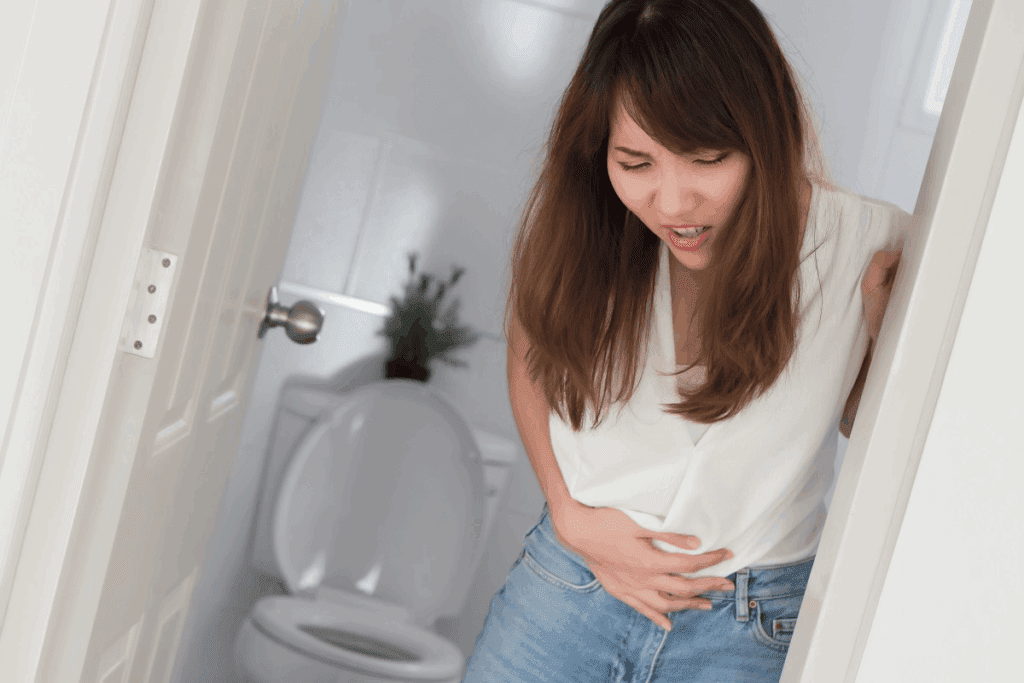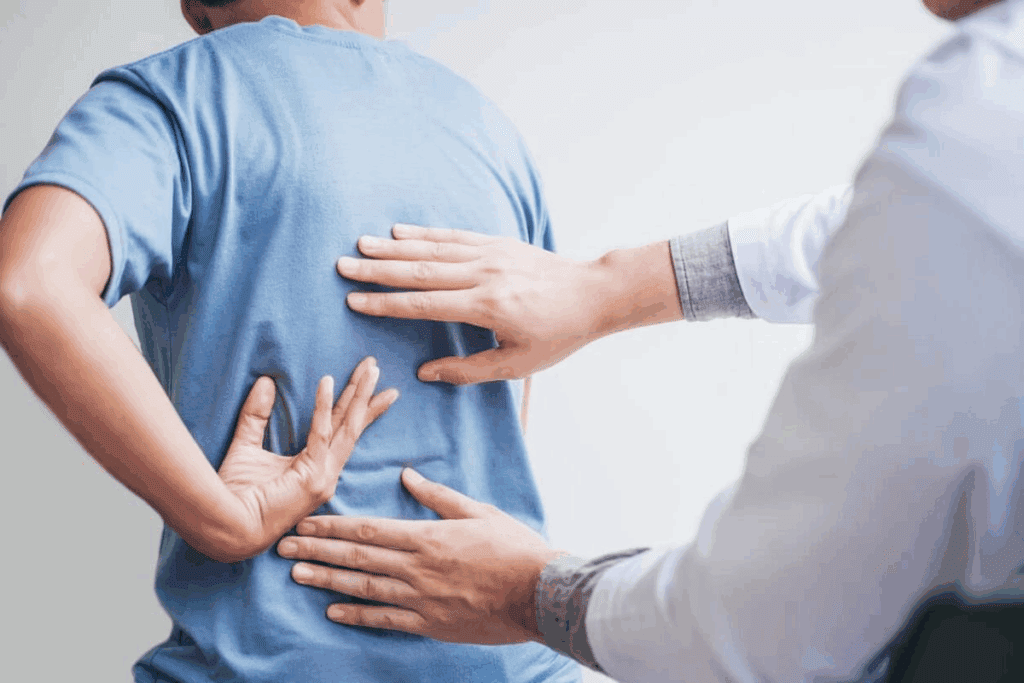Last Updated on October 31, 2025 by Bilal Hasdemir

Kidney stones are a common health issue affecting many people worldwide. At Liv Hospital, we know how worried people get about this. While kidney stones are rarely fatal, they can cause serious problems if not treated.
These hard deposits are made of minerals and salts and form in the kidneys. They can cause a lot of pain. If not treated quickly, they can lead to infections, sepsis, and kidney damage.
It’s important to understand the risks of untreated kidney stones. This helps in getting the right treatment and avoiding long-term damage.

Kidney stones are hard deposits made of minerals and salts. They form inside the kidneys. Their formation is influenced by diet, hydration, and genetics.
Kidney stones form when minerals or salts concentrate in urine. This concentration causes minerals to clump together. Dehydration increases this risk by making urine more concentrated.
“The most common type of kidney stone is calcium oxalate,” doctors say. These stones form when there’s too much calcium and oxalate in the urine.
There are several types of kidney stones, each with different causes:
Risk factors for kidney stones include dehydration, diet, obesity, and certain medical conditions. Men are more likely to develop kidney stones than women. The prevalence of kidney stones is increasing, likely due to changes in diet and lifestyle.
Recent studies show that “the lifetime risk of developing a kidney stone is about 12% in men and 6% in women.” Understanding these statistics and risk factors can help in preventing kidney stones.

Knowing the signs of kidney stones can prevent serious problems. These stones can cause mild to severe pain. It’s important to recognize these signs early for timely treatment.
Early signs of kidney stones include severe back or abdomen pain. This pain, called renal colic, can be constant or come and go. Other early signs include:
These symptoms happen because the stone is moving and causing irritation. If you notice these signs, get medical help right away.
Some symptoms are more serious and need immediate care. These include:
If you have these severe symptoms, go to the emergency room. Untreated problems can cause serious damage, like kidney damage or sepsis.
The location of the stone affects symptoms. Stones in the kidney may cause mild pain. But stones in the ureter can cause severe pain and other issues.
| Stone Location | Common Symptoms |
| Kidney | Mild pain, occasional hematuria |
| Ureter | Severe pain (renal colic), nausea, vomiting, frequent urination |
| Bladder or Urethra | Painful urination, frequent urination, urgency |
Knowing symptoms by stone location helps you know when to get medical help. If you have unusual or severe symptoms, see a doctor.
Kidney stones can progress differently based on their size. Some may pass without trouble, while others can cause serious problems. It’s important for patients to understand these outcomes to make informed decisions about their health.
Small stones, under 5 mm, often pass on their own. About 80% of stones smaller than 5 mm can pass on their own, with little pain. Yet, passing a stone can be painful and may need symptom management.
Those with small stones should drink plenty of water and manage their pain. Monitoring is also recommended to ensure the stone passes and to watch for any complications.
Medium to large stones (over 5 mm) rarely pass on their own and can cause more pain. Stones larger than 10 mm rarely pass spontaneously and often need medical help.
Without treatment, these stones can block the flow, cause infections, and damage the kidneys. The bigger the stone, the higher the risk of these problems.
| Stone Size (mm) | Likelihood of Spontaneous Passage | Risk of Complications |
| <5 | High (about 80%) | Low |
| 5-10 | Moderate | Moderate |
| >10 | Low | High |
A stone stuck in the ureter for months can cause serious and long-lasting problems. Chronic obstruction can cause kidney damage and increase the risk of infection. If not treated, it can lead to permanent kidney loss.
“A stone lodged in the ureter for months can lead to irreversible damage, stressing the need for timely medical intervention.”
— Medical Expert, Urologist
Long-term effects can include chronic pain, recurring infections, and serious conditions. Prompt treatment is essential to avoid these outcomes and protect kidney function.
Kidney stones are common but can be serious. They cause a lot of pain. But the real danger is if they lead to serious complications.
Kidney stones themselves are rarely fatal. But, they can cause serious infections and other problems. These can be deadly, mainly for people with other health issues.
Studies show that deaths from kidney stones are rare. But, some groups face a higher risk. These include the elderly and those with other health problems.
The death rate from kidney stones is low but not zero. Factors like delayed treatment, health conditions, and stone size play a role.
| Population Group | Mortality Rate | Risk Factors |
| General Population | Low | Delayed treatment, large stone size |
| Elderly | Moderate | Underlying health conditions, urinary tract infections |
| Individuals with Pre-existing Conditions | Higher | Comorbidities, reduced kidney function |
Some factors increase the risk of dying from kidney stones. These include diabetes, heart disease, and kidney disease.
Delayed treatment is a big risk. The longer a stone is untreated, the more severe the complications can be. This includes infections and kidney damage.
Kidney stones are dangerous but not as deadly as heart disease or cancer. Yet, they should not be ignored.
The pain and complications from kidney stones are serious. Quick medical help is key to avoid long-term damage and death risk.
It’s vital to know the risks and take steps to prevent complications. This way, people can lower their risk of severe outcomes from kidney stones.
Untreated kidney stones can lead to serious health problems. They can affect not just the urinary tract but also overall health. It’s important to treat them properly.
One serious issue is urinary tract infections (UTIs). A stone blocking urine flow can cause bacterial growth, leading to an infection. If not treated, UTIs can turn into sepsis, a life-threatening condition.
Sepsis is a medical emergency needing quick attention. Symptoms include fever, chills, rapid heart rate, and confusion. Quick treatment with antibiotics is key to avoid serious outcomes and death.
Untreated kidney stones can harm the kidneys. A stone blocking urine flow can cause pressure, damaging kidney tissue. This can lead to chronic kidney disease or even kidney failure over time.
Kidney failure is a serious condition needing dialysis or a transplant to live. The risk is higher for those with recurrent stones or underlying kidney disease.
Untreated kidney stones can also cause chronic pain. This pain can be severe and make daily activities hard. It can also lead to emotional issues like anxiety and depression.
Getting timely treatment is key to avoid these issues. It helps improve overall well-being and quality of life.
| Complication | Description | Potential Consequences |
| Urinary Tract Infections | Bacterial growth due to blocked urine flow | Sepsis, kidney damage |
| Kidney Damage | Pressure buildup in the kidney | Chronic kidney disease, kidney failure |
| Chronic Pain | Debilitating pain due to kidney stones | Emotional distress, anxiety, depression |
It’s important to know when kidney stones are dangerous. Some stones can pass easily, but others need quick medical help. We’ll talk about the warning signs that show kidney stones are serious.
Kidney stones can cause infections, which can lead to septic shock. Look out for these symptoms:
If you have these symptoms, get medical help right away. Infections and septic shock are very dangerous. They can be deadly if not treated quickly, answering the question: can you die of kidney stones?
A blockage from a kidney stone is very serious. It can cause:
This blockage is a medical emergency. If not treated, it can damage your kidneys permanently. It’s so serious that it shows how deadly kidney stones can be if not treated right.
Kidney stones can also harm your kidney function. This can lead to:
It’s key to watch your kidney function, even more so if you’ve had stones before. Kidney damage can happen slowly. Regular check-ups can catch problems early. This shows that can you die with kidney stones if they damage your kidneys badly.
In summary, while most kidney stones aren’t deadly right away, some signs mean they’re serious. Knowing these signs and getting medical help fast can stop serious problems and save lives.
Understanding how to diagnose and treat kidney stones is key to managing them well. To find out if you have kidney stones, we use imaging tests and procedures. These help us see the stone’s size and where it is, which helps us decide how to treat it.
We use several tests to find kidney stones. These include:
These tests tell us about the stone’s type, size, and where it is. This information is important for choosing the right treatment.
The treatment for kidney stones depends on the stone’s size and where it is, as well as your health. For small stones, we often recommend:
For bigger stones, we might need to use more serious treatments. We’ll talk about these options next.
When the stone is big or blocks the flow, surgery might be needed. Some surgical options include:
We choose the best treatment based on your condition. We consider the stone’s size, location, and type, as well as your medical history and health.
To prevent kidney stones, you need to make dietary changes, drink plenty of water, and sometimes take medicine. Knowing what causes stones helps you avoid them. This way, you can lower your risk of getting stones again and avoid problems.
The kind of kidney stone you’ve had affects your diet. If you had calcium stones, eat less sodium and more foods rich in citrate, like lemons and oranges. If you had uric acid stones, cut down on animal protein and eat more alkaline foods.
“Changing your diet is key to stopping kidney stones from coming back,” says a top urologist. “By making diet changes based on your stone type, you can lower your risk of getting stones again.”
Drinking enough water is key to preventing stones. It helps dilute your urine, making it less likely for minerals to form stones. We suggest drinking at least 2.5 liters of water a day. Also, staying healthy and managing conditions like high blood pressure can help prevent stones.
For some, diet and hydration aren’t enough to stop stones from coming back. In these cases, medicines can help. Thiazide diuretics can lower calcium in your urine, and potassium citrate can prevent uric acid stones.
If you’ve had kidney stones before or are at high risk, you should get checked regularly. This includes urine tests, blood tests, and imaging to catch problems early. By being proactive and working with your doctor, you can lower your risk of getting stones again and avoid complications.
Getting kidney stones treated quickly is key to avoiding serious problems. Knowing the dangers of not treating them and spotting early signs of trouble can lead to getting help sooner. At Liv Hospital, we aim to offer top-notch healthcare and support to patients from around the world.
It’s vital to treat kidney stones fast because waiting can cause infections, damage to the kidneys, and even life-threatening issues. By taking steps to prevent them and getting medical help when needed, people can lower their chances of getting stones again. Quick treatment is vital for keeping the kidneys healthy and overall well-being.
We stress the need to see a doctor if symptoms don’t go away or get worse. Our team is here to give personalized care and support. We make sure patients get the best treatment for their kidney stone issues.
Yes, if left untreated, kidney stones can cause serious problems. These include infections and damage to the kidneys. In severe cases, this can be life-threatening.
Not passing a kidney stone can block the flow of urine. It can also lead to infections and damage the kidneys. Getting medical help quickly is important to avoid lasting harm.
Kidney stones are not usually deadly. But, certain health issues and delayed treatment can raise the risk of death.
In rare cases, a kidney stone can cause serious problems. These include sepsis or kidney failure if not treated or if treatment is delayed.
Untreated kidney stones can lead to serious issues. These include urinary tract infections, sepsis, kidney damage, and even kidney failure.
A kidney stone stuck in the ureter for a long time can cause chronic kidney damage. If not treated, it can lead to life-threatening complications.
To prevent kidney stones, you need to make several changes. These include eating certain foods, drinking enough water, and making lifestyle changes. Also, some people may need medication to prevent stones from coming back.
Warning signs include fever, chills, and confusion. These are signs of infection and septic shock. Also, look out for complete blockage of urine and worsening kidney function.
To diagnose kidney stones, doctors use imaging tests. These help find the stone’s size and location. Treatment depends on the stone’s size and complexity. It can range from medical treatments to surgery.
Bloom, D. A., & Finlay, D. (1922). A roentgen-ray study (including pyelo-ureterography). Journal of the American Medical Association, 79(9), 641–647. https://jamanetwork.com/journals/jama/articlepdf/230490/jama_79_9_013.pdf
Subscribe to our e-newsletter to stay informed about the latest innovations in the world of health and exclusive offers!
WhatsApp us